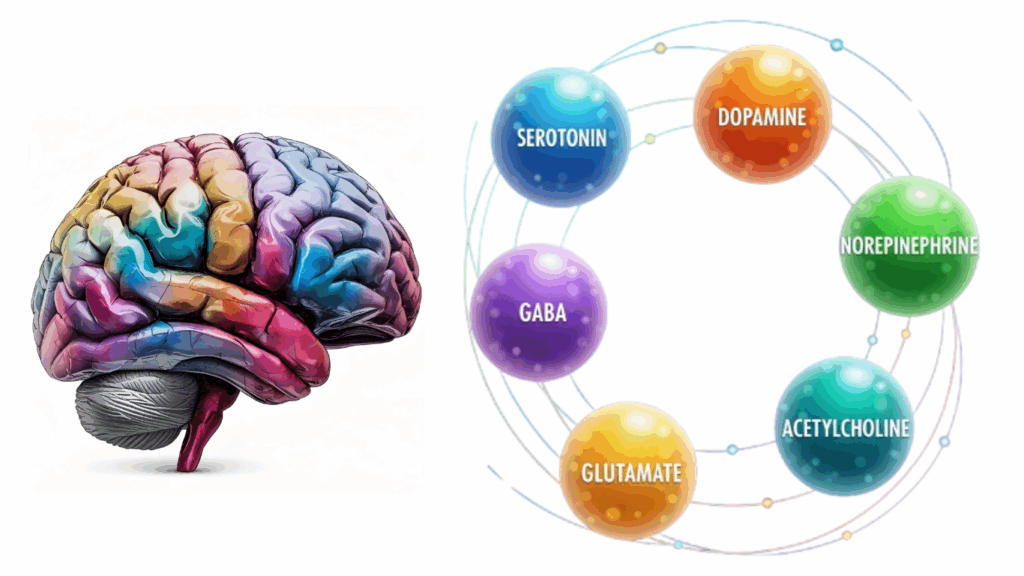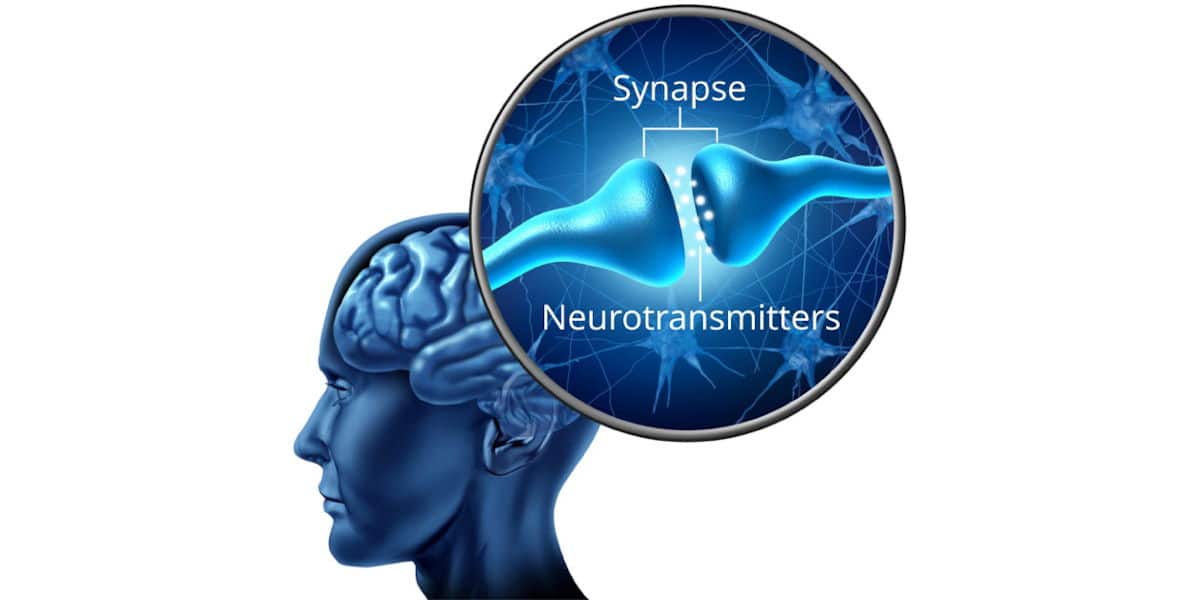Introduction: Why Neurotransmitters Matter
Think of your brain as a vast social network. Posts and messages crisscross between billions of cells—but instead of tweets or chats, the currency here is chemicals called neurotransmitters. They’re vital for everything from mood and memory to focus, motivation, and even physical movement. That’s why this article delves into six of the most influential players in our neurochemical world—they’re not just biology jargon, but influencers of our day-to-day experience.
What Are Neurotransmitters? A Simple Definition
At its core, a neurotransmitter is a chemical messenger. Neurons (nerve cells) communicate with each other via synapses—tiny gaps where messages jump from one cell to another. These messages are carried by neurotransmitters, which are released by one neuron, travel across the synapse, and bind to receptors on the next neuron. Think of them as emails or texts between brain cells: precise, fast, and essential.
The Big Six: Key Neurochemicals at a Glance
This article focuses on six major neurotransmitters that heavily influence how we feel and function:
Serotonin
Influences mood, appetite, sleep, and social behavior.
Dopamine
Plays roles in reward, motivation, movement, and even addiction.
Norepinephrine
Essential for alertness, focus, and readiness for action.
GABA (Gamma-Aminobutyric Acid)
The brain’s primary inhibitory transmitter—think calm and relaxation.
Glutamate
The most common excitatory neurotransmitter—critical for learning and memory.
Acetylcholine
Tied to muscle function, attention, and memory, especially in the hippocampus.
Exploring Each Neurotransmitter in Depth
Serotonin: The Mood Regulator
Serotonin has a hand in many emotional and bodily processes. Often called the “feel-good” neurotransmitter, its levels are linked with mood balance. Low serotonin is often associated with sadness or anxiety. It’s also involved in digestion, appetite suppression, and circadian (sleep) rhythms.
Dopamine: Motivation and Reward
Dopamine’s claim to fame is its role in motivation and reward—long before “dopamine hits” became a popular term, science recognized its importance in perseverance, pleasure, and even learning. It’s involved in muscle control too—imbalances can be implicated in movement disorders like Parkinson’s.
Norepinephrine: The Alertness Chemical
Norepinephrine (also called noradrenaline) is the body’s alarm system. It kicks in during stress or excitement, ramping up heart rate and sharpening focus. This makes it important in attention disorders and anxiety. Too much overstimulation; too little can lead to fatigue and poor concentration.
GABA: The Calming Influence
GABA is the brain’s brake pedal. By reducing neural activity, it provides mental calm, reduces stress, and helps with restful sleep. Anti-anxiety medications often enhance GABA’s effect because of its relaxing influence.
Glutamate: The Learning Booster
As the primary excitatory neurotransmitter, glutamate powers the brain’s learning circuits. It strengthens connections between neurons—a process called “synaptic plasticity.” Too much glutamate, however, can stress the system, even contributing to neurological conditions like epilepsy.
Acetylcholine: Movement and Memory
Acetylcholine is intimately tied to muscles and memory. It stimulates movement at neuromuscular junctions and modulates attention and memory in the brain. Alzheimer’s disease, for instance, is characterized by decreased acetylcholine in certain regions.



